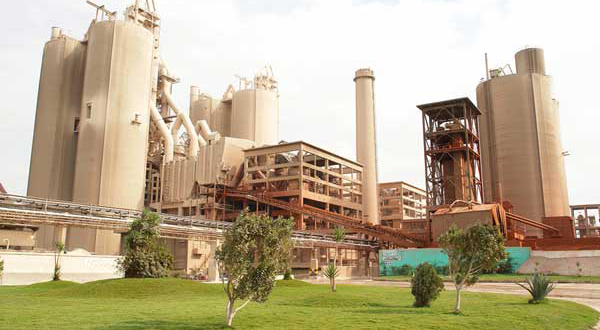 CAIRO: Starting next year, Egypt will embark on a relocation project which should eventually see cement factories moved out of the Helwan governorate.
CAIRO: Starting next year, Egypt will embark on a relocation project which should eventually see cement factories moved out of the Helwan governorate.
Minister of Trade and Industry Rachid Mohamed Rachid approved last week licenses awarded for the project, which is billed as the solution to pollution problems attributed to the location of a number of cement factories in the area, which has a high population density.
The aggregate relocation costs for all cement factories in Helwan are estimated at LE 40 billion: LE 17 billion for Suez Cement, LE 7 billion for National Cement and LE 16 billion for other cement factories, according to the Industrial Development Authority (IDA).
The first phase of the relocation project will begin in 2011 and last for four years, and the second phase will begin in 2015.
Amr Assal, head of the Industrial Development Authority, said that the first phase would begin with the decommissioning of 13 production lines that were either out of order or where the technology is outdated.
According to a statement on their website, by the completion of the first phase, production capacity of the relocated plants will increase to 2 million tons, after the addition of 900,000 tons to the current capacity of 1.1 million tons.
Rachid said that Egypt plans to increase the production and supply of cement in the domestic market and to increase competition in the sector. These developments are crucial in meeting increasing demand brought about by the expanding urban development plans, construction and infrastructure projects.
The move is part of a plan to bolster Egypt's total cement production to 77 million tons by 2015, up from 56 million tons this year. According to ministry, production will reach 62 million tones after the introduction of four new cement plants next year.
The relocation plan, Rachid said, will free up 500,000 square meters that can be allocated for projects in any sector except industrial. It will also reduce environmental pollution in the greater Helwan area by 40 percent.
Lama Al Hatow, a sustainable development PhD candidate from the Delft University of Technology in the Netherlands, pointed out the positive aspects of the move. “Suspended Particle Matter (SPM), very fine dust-like particles emanating from the factories,” are hazardous to health and cause respiratory problems, she said.
Although the Egyptian Environmental Affairs Agency (EEAA) stipulate that filters be placed on cement plant incinerators, it is difficult to determine whether the regulations are followed. General speaking, she added, industrial areas should be located as far away from residential areas as possible.
“Industrial activity, particularly cement factories, require large amounts of energy and water, straining the resources of these residential areas,” she added.
“Now, it is important to ask where the government is relocating these factories and where they are getting their utility connections from, if they claim to be moving them so far away from residential zones,” she said.
The license for the first phase was awarded after the minister approved recommendations made by the committee responsible for industrial cement licenses to reassign one of the licenses initially awarded to the El Wadi Cement and North Sinai Cement companies whose licenses had been revoked.
Reuters reported Sunday that the IDA has changed the location for a reissued cement license to help attract investor interest, after the license was scrapped twice, re-opening the bidding for two cement licenses previously held by El Wadi Cement and North Sinai Cement after the firms had permits withdrawn in November over start-up delays and financing shortfalls, but closed the bid without interest from investors.
Last week, the IDA offered one of those licenses to Helwan Cement, majority owned by Egypt's biggest listed cement maker, Suez Cement group, to relocate some of its 1.1 million tons of production capacity.
Assal told Reuters the 2007 bidders would be allowed to apply in a bid to start in October, but did not specify the exact location of the license.
Requirements for new licenses to build cement plants include getting the approvals from the EEAA and building the plants in a location outside the scope of the governorates of Greater Cairo, Delta, Alexandria and Port Said, Ismailia and South Sinai, Hurghada, Luxor and Sohag.
Cement companies will be allowed to bid for the new license in October when the government will accept any bid higher than the bidding price declared on October 28, 2007 plus interest at a discount rate announced by the Central Bank of Egypt.



